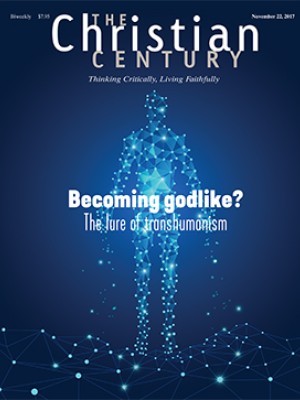I passed on the chocolate dessert tray in the restaurant last night, tempting as it was. I dread passing through the TSA screening lines at the airport when I’m in a hurry. I pass columns like this your way hoping to stir your heart and mind on matters of faith and life.
One thing I will never pass, however, is away. I expect to die, and you’d be smart to expect the same. But neither of us will “pass away.” I know the phrase has become increasingly popular in recent decades; some would say irritatingly popular. A survey of contemporary obituaries reveals that nearly 50 percent of families no longer refer to the death of their loved one. Mom merely “passed away.” Or, when brevity is in vogue, she “passed.”
Read our latest issue or browse back issues.
A funeral director I know thinks this linguistic trend is an attempt to make death sound less cold, more gentle, and not so harsh. That sounds about right. We don’t do well with the finality of death. We like to keep it at arm’s length. To speak of mother’s death as a “passing” is to lend a wispy and soft feel to her disappearance, almost as if an unsuspecting wind mysteriously swept her out of view.
“When a person is born we rejoice,” anthropologist Margaret Mead once wrote. “And when they’re married we jubilate. But when they die we try to pretend nothing has happened.” To pretend as if the sudden absence of our best friend’s voice or laugh at the table doesn’t affect us is to perform a disservice to ourselves. Faith allows us to honor the reality and finality of death. It teaches us that grief can be a gift, just as tears rolling down the cheek can be a love offering for that friend who has died.
The oddity of trying to soft-pedal death with the language of passing away sounds all the more awkward when we try to speak of its counterpart—birth—in similarly wispy ways. As an experiment, try not to think of yourself as being born. Instead, see yourself as gradually showing up. You passed into the liveliness of infancy through an elaborate process called labor. You made your presence known to others as you emerged into oxygenated air. Can’t we just be straightforward about the two bookends of life? We’re born. And we die.
Jesus Christ overcame death and the grave. We’re never told he holds a victory flag over our passing away. If that were the case we’d have to rewrite Paul to read: “‘Passed away has been swallowed up in victory.’ ‘Where, O passed away, is your victory? Where, O passed away, is your sting?’”
When the day arrives for me to shutter my eyes for a final time and breathe my last, who knows what euphemisms and dysphemisms will be uttered? Peter “checked out.” He “kicked the bucket.” He’s “juggling haloes now.” I guess he’s “taking up harp.” Or, in the elegant poetry of E. E. Cummings, he “started a worm farm.”
But those who know me best, and the confidence I have in God, only need four words: Peter died in faith. That will do it. Those four words will speak honesty, truth, and love, all at the same time. And the Lord will be praised.
A version of this article appears in the November 22 print edition under the title “Let euphemism pass away.”








